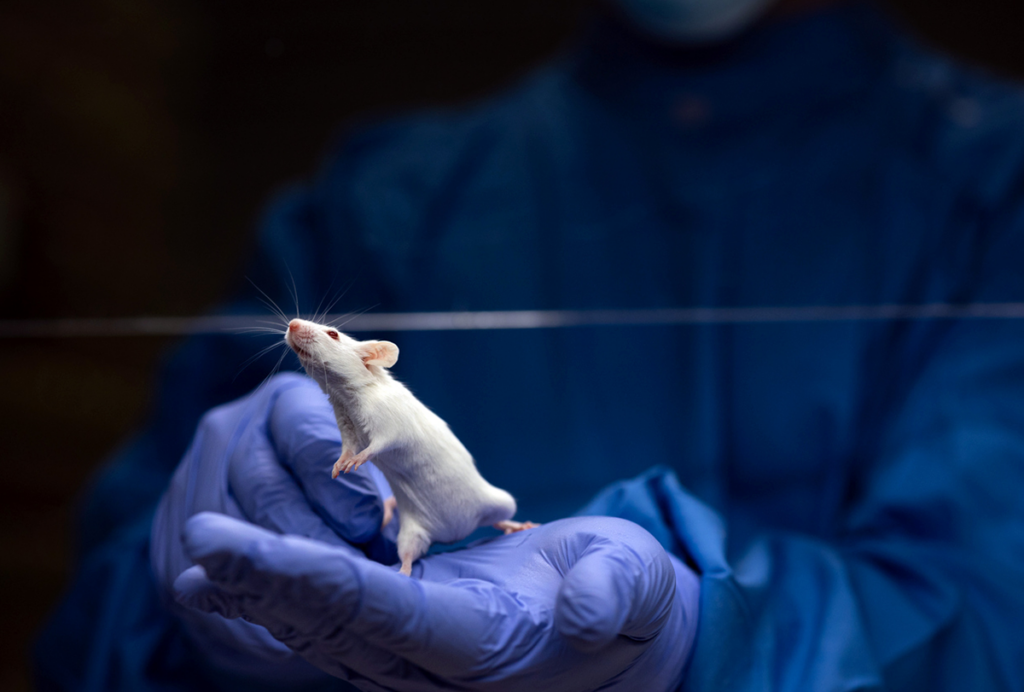
Children with autism bear brunt of antipsychotic drugs
Children with autism are more likely to be prescribed antipsychotic medications earlier and for longer periods than are their typical peers.
Children with autism and intellectual difficulties are more likely to be prescribed antipsychotic drugs than their typical peers, according to a large study based in the United Kingdom1. They are also prescribed antipsychotics such as risperidone at younger ages, and for longer periods of time.
The study also found some surprising associations between antipsychotic use and seizures, respiratory infections and self-injury.
The antipsychotics risperidone, aripiprazole and haloperidol are approved in the U.K. to treat children with conditions such as schizophrenia and bipolar disorder. No antipsychotics are approved to treat the core features of autism in the U.K., but the drugs are often prescribed off-label for children with the condition.
The new work suggests that physicians often prescribe antipsychotics to help manage behavioral problems in children with autism — perhaps as a first instead of a last resort. Other studies also indicate that many children with autism who take antipsychotic medications are not first offered safer options, such as behavioral therapy.
“Is this how we want to be using certain medications?” asks lead researcher Sinead Brophy, professor of public health informatics at Swansea University in Wales, the U.K. “Should the use of antipsychotics be audited more so they are more short-term than long-term?”
The results, based on more than 1.4 million children in Wales, mesh with those from a 2015 study in England2. Children with autism in the United States are also more likely to be prescribed these medications, and at even higher rates3. A study last year suggested that about 20 percent of children with autism in the U.S. are prescribed antipsychotics4.
That study looked at children with autism alone, rather than grouping autism with intellectual challenges, such as a learning disability or Down syndrome.
The new findings indicate that clinicians do not regularly follow children to whom they prescribe medications, researchers say.
Physicians should see these results as a warning that they are “not engaged in careful management practices,” says David Mandell, professor of psychiatry at the University of Pennsylvania, who was not involved in the work. “The biggest thing that I take away from this study is the need for that kind of careful monitoring.”
Seizure control:
Brophy and her colleagues reviewed a national database of medical and education records for children living in Wales between 1999 and 2015. The health records carry information about diagnoses, as well as doctor and hospital visits; the education records also include diagnostic information such as whether a child has a learning disability.
The researchers categorized the children either as typical or as having ‘autism/intellectual difficulty.’ The latter group consists of more than 28,000 children with autism, as well as those with Down syndrome, intellectual disability or learning disability.
Grouping these conditions into one category makes it tricky to draw conclusions specific to autism, says Lisa Croen, director of the Autism Research Program at Kaiser Permanente in Oakland, California, who was not involved in the study.
“The group defined as ‘intellectual difficulty/autism’ is a very broad range of diagnoses and conditions, and I don’t think they all fall within the neurodevelopmental rubric,” she says. “You can’t really draw any conclusions about autism.”
Nearly 3 percent of the autism/intellectual difficulty group were prescribed antipsychotics, compared with 0.15 percent of typical children, the researchers found. The findings were published 27 February in the Journal of Child and Adolescent Psychopharmacology.
Prescription puzzle:
Children in both groups were more likely to visit a doctor for seizures after being prescribed an antipsychotic drug, the study found.
The finding is “provocative,” but other studies haven’t found such an association, notes Lawrence Scahill, professor of pediatrics at Emory University in Atlanta, who was not involved in the work. He says some unknown factor, rather than the drugs themselves, may be triggering the seizures.
Alternatively, the reason for the increase may be that children are more likely to have seizures as they age, Mandell says.
The study raises the possibility that antipsychotics have other negative effects not usually associated with autism, such as an increased risk of respiratory infections.
This finding is also puzzling, experts say.
Certain antipsychotics such as clozapine decrease the number of infection-fighting white blood cells, Scahill says, but typically only for a short period after treatment begins. “I was surprised at this respiratory finding,” Scahill says. “I didn’t really know what to make of it.”
Children in the autism group were also twice as likely to seek hospitalization for depression after receiving antipsychotics as before; by contrast, the typical group had fewer hospital visits for depression after being prescribed the drugs.
Children in the autism group were also more likely to visit a doctor for an injury, including for self-injurious behavior.
This doesn’t necessarily mean that the drugs drive children to injure themselves, Mandell says. It could be that the child was self-injurious to begin with and the antipsychotics only partially addressed this behavior.
Brophy says she next plans to do a similar analysis of antipsychotic use among adults with autism.
References:
Recommended reading

New organoid atlas unveils four neurodevelopmental signatures

Glutamate receptors, mRNA transcripts and SYNGAP1; and more

Among brain changes studied in autism, spotlight shifts to subcortex
Explore more from The Transmitter

Not playing around: Why neuroscience needs toy models
